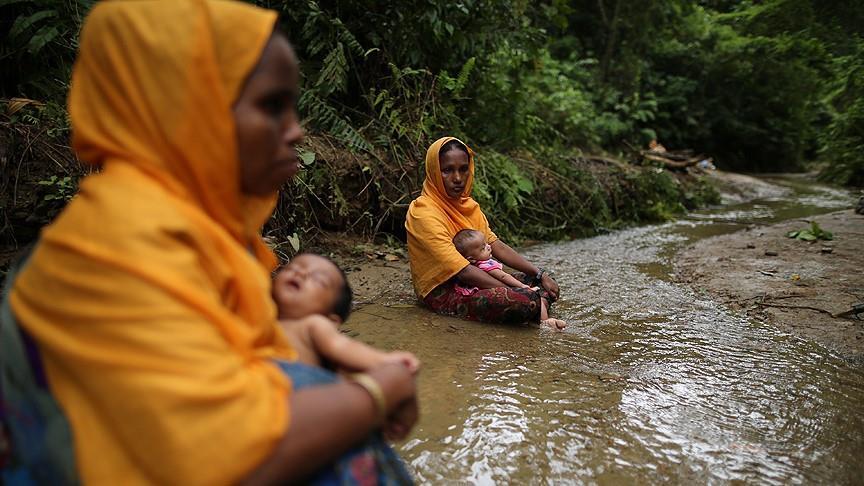Scholar calls for regional solution to Rohingya crisis
Thai academic says Myanmar's neighbors must help stem ethnic violence in Myanmar

By Ahmet Sait Akcay and Cansu Dikme
ANKARA
Only Myanmar’s neighbors can resolve the crisis in the country’s western state of Rakhine, where nearly 300,000 Rohingya Muslims have been forced to flee, a leading Thai analyst has said.
Thitinan Pongsudhirak, an associate professor and director of the Institute of Security and International Studies at Bangkok’s University of Chulalongkorn, told Anadolu Agency that southeast Asian nations needed to come together to end sectarian violence in Rakhine.
“Rakhine’s combustible ethnic and religious mix can only find long-term solutions with the regional accommodation among Bangladesh, Myanmar, Thailand, Malaysia, and Indonesia,” he said in an email.
Pongsudhirak suggested that Rohingya should be provided job opportunities in other countries to provide them with an alternative to life in refugee camps on the Bangladeshi border.
He criticized the “muted” response of State Counsellor Aung San Su Kyi, Myanmar’s de facto leader.
Myanmar security forces launched a fresh crackdown in Rakhine on Aug. 25 in response to renewed attacks by Rohingya militants, creating a fresh wave of Rohingya refugees heading to Bangladesh.
The new arrivals have reported widespread killing by security forces and Buddhist mobs, with homes looted and whole villages razed.
Rohingya, described by the UN as the world’s most persecuted people, have faced heightened fears of attack since dozens were killed in communal violence in 2012.
Far-reaching crisis
Last October, following attacks on border posts in Rakhine’s Maungdaw district, security forces launched a five-month crackdown in which, according to Rohingya groups, around 400 people were killed.
The UN documented mass gang rapes, killings -- including infants and young children -- brutal beatings and disappearances committed by security personnel.
In a report, UN investigators said the human rights violations may have constituted crimes against humanity.
Pongsudhirak said the humanitarian crisis was “unfolding, with far-reaching ramifications for nearby Muslim-dominant countries, particularly Malaysia and Indonesia and beyond.”
He called for an “inclusive” approach to the crisis and an “even-handed” approach to tensions between Rakhine’s Muslim and Buddhist communities.
“Myanmar [has] had to learn basic processes that other countries take for granted, such as how parliamentary committees work and how legislation takes place,” he said.
Around 700,000 of
According to Bangladeshi Foreign Minister Abul Hasan Mahmood Ali, around 3,000 Rohingya have been killed in Rakhine in the latest bout of repression.
Turkey has been at the fore of providing aid to Rohingya refugees and President Recep Tayyip Erdogan has said he will raise the issue at the UN.
Anadolu Agency website contains only a portion of the news stories offered to subscribers in the AA News Broadcasting System (HAS), and in summarized form. Please contact us for subscription options.

